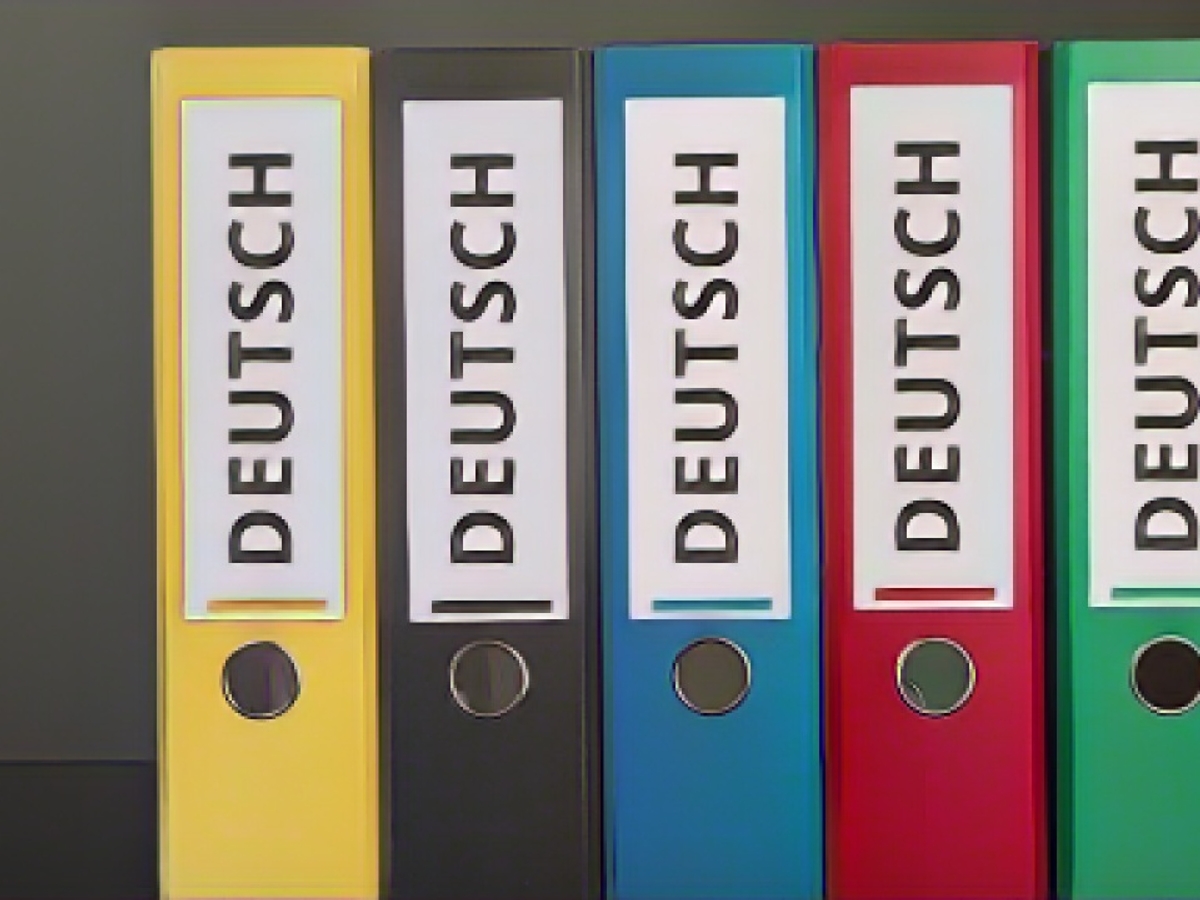German for the job
If you would like to continue learning German after the integration course or another German course, you may be able to take a vocational language course. This course is also called "German for the job" or "job-related German language support". A job-related German course is designed to help you gain a foothold in the German job market or gain further qualifications.
What do I need to know?
What is a job-related German course?
There are different types of job-related German courses. There are basic modules, in which you can improve your general language skills, and special modules with a specific focus. In the basic modules, you can start at level B1, B2 or C1 and generally learn up to C2. In the special modules you can, for example, learn technical terms for your profession or start at a lower level (A1 or A2) if you have not passed the integration course.
Can I take a job-related German course?
Whether you are allowed to take part in a job-related German course depends on your residence status.
I have a residence permit: You can take a job-related German course if you have a residence permit for Germany and you are registered as unemployed with the Jobcenter or the Federal Employment Agency or you are looking for a training place or are currently doing training or you are currently having your foreign qualification recognized.
Please note: Migrants and refugees who are already working can also take part in a job-related German course if their language skills are not yet sufficient to cope well with everyday working life. In this case, however, you will have to pay part of the costs yourself. You can find out more about this in the section "What does a job-related German course cost?".
I have a residence permit: If you are still in the asylum procedure, your entitlement to participate depends on your country of origin or the date of your entry:
- If you come from a country with "good prospects of remaining", you are allowed to take part in a work-related German course. Countries with good prospects of remaining in Germany from the perspective of the Federal Ministry of Labor and Social Affairs are currently: Syria, Eritrea, Somalia and Afghanistan.
- If you come from a "safe country of origin", you are not allowed to take part in a vocational German course. Safe countries of origin are currently: Albania, Bosnia & Herzegovina, Ghana, Kosovo, North Macedonia, Montenegro, Senegal and Serbia.
- The following regulation applies to all other countries: If you came to Germany before July 31, 2019 and are registered as a jobseeker with the Federal Employment Agency or are working or doing an apprenticeship or similar, you may take part in a job-related German course after three months.
I have a tolerated stay permit: If you have a tolerated stay permit, your entitlement to participate depends on the duration of your tolerated stay or the type of tolerated stay permit you have:
- If you have already had a tolerated stay for six months and are registered with the Federal Employment Agency as a job seeker or are working or doing an apprenticeship or similar, you are allowed to take part in a job-related German course.
- If you have a discretionary tolerated stay permit in accordance with Section 60a (2) sentence 3 of the Residence Act, you may also attend a vocational German course from the outset. The "Ausbildungsduldung " and the "Beschäftigungsduldung " are among the discretionary tolerations.
Where and how do I register for a job-related German course?
The clerks at the Jobcenter or the Federal Employment Agency will decide whether you are allowed to take part in a job-related German course. If they approve your participation in a course, you will receive an "education voucher". You can use this voucher to register at a school near you. Your case worker can tell you which schools offer a "German for the job" course. You can also search for a course online on the KURSNET website.
If you are not registered as unemployed but are employed, you can ask your boss whether they will approve a German course for you.
How much does a job-related German course cost?
The job center or employment agency will pay for the course for you if
- you are registered as unemployed,
- are looking for or doing an apprenticeship
- or are in the process of having your foreign qualification recognized
and the job center or employment agency has approved your participation in a job-related German course.
If you are already working and would like to take part in a job-related German course to improve your language skills, you will have to pay half of the costs yourself. You can also ask your boss whether they will cover these costs for you.
Important
If you would like to work as a doctor, pharmacist or therapist in Germany, but have completed your degree abroad, you must take a so-called "specialist language test". You will only be permitted to work in these professions if you pass this exam. To prepare for this exam, it is worth attending a specialist German language course at level C1. Your case worker at the job center or employment agency can help you with your search.
Source: handbookgermany.de








